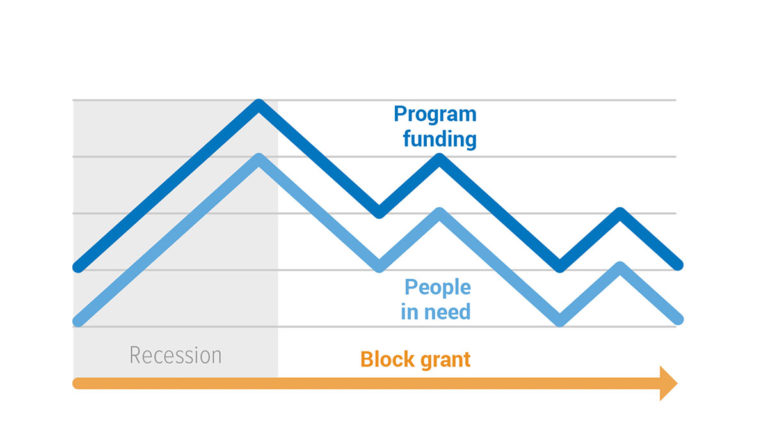Block Grants Fail To Respond to Need
Block grants give states control over funding allocation, but are problematic because they limit the ability of states to respond to changing population needs.

Read Time: 1 minutes
Published:
The American Health Care Act may be dead, but the idea of block grants will continue to emerge in subsequent reform debates. For example, SNAP block grants have been proposed within the House Republican Budget Resolutions for the last six years, cutting funding for the program by $125 billion over 10 years.
Under a block grant, the federal government gives states a fixed amount of money to administer a program. Block grants are problematic because they limit the ability of state leaders to respond to changing needs such as during an economic downturn when more people need help. If a state does not have sufficient funding for a program, it has few options: raise taxes, restrict eligibility, create waiting lists, cut benefits, or siphon funds from another crucial program within the state. All of these options make vulnerable populations more vulnerable.
By contrast, the Center for Budget and Policy Priorities observes that “by assisting people when times are tough, entitlements also help stabilize the economy.”
Databyte via The Problems with Block-Granting Entitlement Programs. Center on Budget and Policy Priorities.



